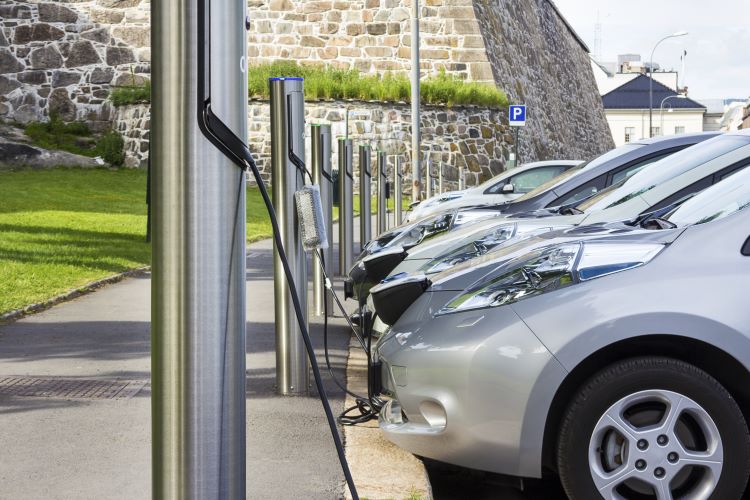Driving the Future: Electric Cars in India
The landscape of transportation in India is witnessing a remarkable transformation with the emergence of electric vehicles (EVs). As the country grapples with urban pollution and seeks sustainable mobility solutions, electric cars are gradually finding their place on Indian roads. This shift represents not just a technological advancement but also aligns with India's commitment to reducing carbon emissions and dependency on fossil fuels. The government's initiatives like FAME (Faster Adoption and Manufacturing of Electric Vehicles) and various state-level policies have created a supportive ecosystem for the electric vehicle market to flourish across the diverse terrains of the country.

Tradition Meets Modern Mobility
India’s transportation heritage spans from ancient bullock carts to modern high-speed railways, and now electric vehicles represent the next evolutionary step. The transition to electric mobility isn’t simply about adopting new technology—it’s about blending India’s value-conscious approach with forward-thinking sustainability. Urban centers like Delhi, Mumbai, and Bengaluru are increasingly embracing electric cars as practical daily commute options. This shift is particularly significant in a country where family vehicles often serve multiple purposes and need to adapt to varied road conditions.
Electric vehicles are helping to bridge the gap between India’s traditional respect for resources and the modern need for efficient transportation. Families that previously might have considered only conventional fuel vehicles are now exploring electric alternatives that align with both cultural values of resource conservation and contemporary environmental concerns.
Key Features of Electric Cars in India
Electric cars in the Indian market come with distinctive features designed to meet local driving conditions and consumer preferences. Most models offer significant range improvements compared to early iterations, with many now capable of traveling 250-400 kilometers on a single charge—sufficient for urban commuting and occasional intercity travel. Regenerative braking systems, which are particularly effective in stop-and-go traffic common in Indian cities, help extend the range by recovering energy during deceleration.
Climate control systems in Indian electric cars are engineered to handle the country’s diverse temperature zones, from the scorching summers of the plains to the cooler climates in hill stations. Many models incorporate fast-charging capabilities, allowing batteries to reach 80% capacity in approximately 30-60 minutes depending on the vehicle and charger specifications.
Interior designs often reflect a balance between spaciousness valued by Indian families and the space constraints imposed by battery placement. Manufacturers are increasingly offering customization options that appeal to the Indian market, including ground clearance adjustments for uneven roads and suspension systems tailored for varying road conditions.
Sustainability and Indian Innovation
India’s approach to electric mobility involves both adoption of global technologies and development of indigenous solutions. Local startups are pioneering battery management systems that function efficiently in high-temperature environments. Engineering teams across the country are developing lightweight composite materials that increase vehicle efficiency while maintaining structural integrity in diverse weather conditions.
Recycling initiatives for EV batteries are gaining momentum, with research institutions collaborating with industry partners to establish sustainable end-of-life solutions. This addresses concerns about the environmental impact of battery disposal and helps create a circular economy for EV components.
The renewable energy connection is particularly significant, as many charging stations are being powered by solar installations, creating a truly sustainable transportation ecosystem. Urban planning departments in several cities are integrating charging infrastructure with existing renewable energy projects, maximizing the environmental benefits of electric mobility while reducing strain on conventional power grids.
Popular Electric Car Brands in India
The electric car market in India features both international manufacturers and homegrown companies competing to establish their presence. Tata Motors has emerged as a significant player with models like the Nexon EV and Tigor EV that specifically address Indian driving conditions and price sensitivity. Mahindra Electric offers vehicles designed with a focus on durability and adaptability to various Indian terrains.
MG Motor has introduced the ZS EV, bringing international electric vehicle technology tailored for Indian requirements. Hyundai’s Kona Electric represents the entry of established global manufacturers into India’s growing electric market. Mercedes-Benz and Audi have introduced premium electric options for the luxury segment, demonstrating that electrification is occurring across all market tiers.
Each manufacturer brings different strengths—some focus on affordability and practical range, while others emphasize technology integration and premium features. This diversity provides Indian consumers with options that match their specific needs and budget considerations.
Where to Buy Electric Cars in India
Electric cars are available through multiple retail channels across India, with authorized dealerships remaining the primary purchase point for most consumers. Major cities like Delhi, Mumbai, Chennai, Bengaluru, and Hyderabad host dedicated electric vehicle showrooms where potential buyers can experience vehicles firsthand and understand charging requirements.
Many manufacturers have established online booking platforms that allow consumers to research, configure, and reserve vehicles from home—a purchasing approach that gained significant traction during the pandemic and continues to evolve. Several states operate government-supported EV stores that provide information about available models and applicable subsidies, serving as knowledge centers for consumers new to electric mobility.
| Electric Car Model | Price Range (₹) | Claimed Range | Charging Time (0-80%) |
|---|---|---|---|
| Tata Nexon EV | 14-19 lakhs | 312-437 km | 60 minutes |
| MG ZS EV | 22-26 lakhs | 461 km | 50 minutes |
| Hyundai Kona | 23-24 lakhs | 452 km | 57 minutes |
| Mahindra XUV400 | 15-19 lakhs | 456 km | 50 minutes |
| Tata Tigor EV | 12-14 lakhs | 306 km | 65 minutes |
Prices, rates, or cost estimates mentioned in this article are based on the latest available information but may change over time. Independent research is advised before making financial decisions.
The electric vehicle ecosystem in India continues to develop through improved charging infrastructure, battery technology advancements, and supportive government policies. As range anxiety decreases and more affordable models enter the market, electric cars are becoming increasingly viable options for diverse Indian consumers. This transition represents not just a change in propulsion technology but a broader shift toward more sustainable and technologically advanced mobility solutions aligned with both global trends and local requirements.




